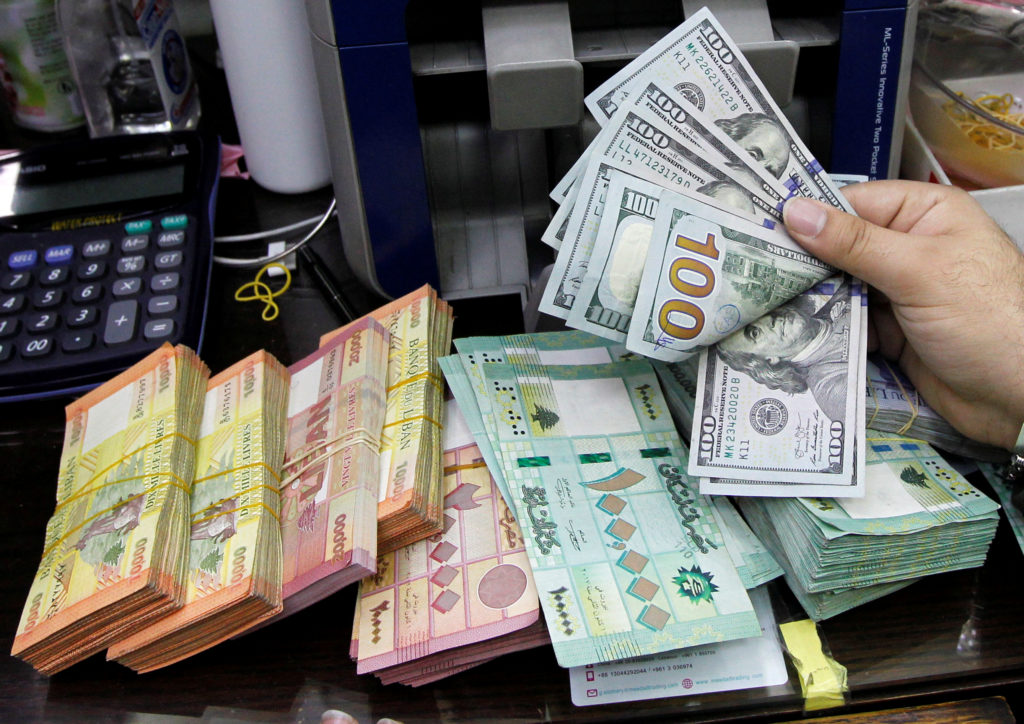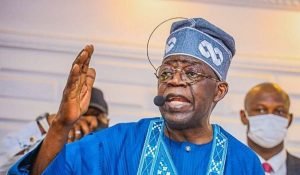
FILE PHOTO: A man counts U.S. dollar banknotes next to Lebanese pounds at a currency exchange shop in Beirut, Lebanon April 24, 2020. REUTERS/Mohamed Azakir/File Photo
The ongoing tight monetary policy of major central banks around the world, as well as domestic factors, including scarcity of foreign exchange, widespread insecurity, and pre-election jitters, will lead to a further decline in foreign capital importation (FCI) into the country, says Lagos-based investment banking firm, Comercio Partners.
Co-Managing Partner and Chief Executive Officer, Comercio Partners Asset Management, Tosin Oshunkoya, stated this while commenting on the FCI in the country in the second quarter of the year, Q2’22.
Data from the Central Bank of Nigeria, CBN shows that FCI in the country rose by 12 per cent, year-on-year, to $3.11 billion in the first half of the year, H1’22, from $2.78 billion in the same period of last year, H1’21.
But in the second quarter of Q2’22, FCI fell by 2.5 per cent, quarter-on-quarter, QoQ, to $1.54 billion from $1.57 billion in Q1’22.
Oshunkoya, however, described the YoY growth in FCI in H1’22, as a statistical phenomenon due to a weak base, stressing that the focus should be on the QoQ decline which showed that foreign investors’ appetite for the Nigerian economy is dwindling.
Explaining the foreign and local factors responsible for this development, Oshunkoya said: “The ravaging trend of inflation across major developed economies has triggered hawkish policy responses such as interest rate hikes, which tend to spur capital repatriation from frontier economies such as Nigeria while discouraging foreign capital inflows into the local economy, particularly through foreign portfolio investments (FPIs).
“Furthermore, the impact of global headwinds does not entirely absolve the local economy of blame, as persistent tightness in the currency market and unabated insecurity remained a fundamental threat to foreign investors in the review quarter.
“As a result, it was unsurprising that FCI fell marginally by 2.40% QoQ to $1.54 billion in Q2’22, owing largely to a 20.91% drop in FPIs, which have historically accounted for over 55% of capital imported into the local economy over the last five years.”
Highlighting the insignificance of the YoY growth in FCI in Q2’22, Oshunkoya explained: “While we are aware of the 75.34% year-on-year increase in capital importation in the review quarter, we must attribute this increase to the weak base period, as the Q2 2021 base quarter was hampered by lingering Covid-19 concerns due to the prevalence of the virus’s Delta variant.
“As a result, the YoY increase in foreign capital imported in Q2 2022 is merely statistical, as comparing the capital imported in Q2 2022 to the amount recorded in the corresponding period of the 2019 pre-pandemic year reveals a staggering 74.63% decline. Similarly, FDIs, FPIs, and Other Investments fell by 34.05%, 82.59%, and 57.39%, respectively, in Q2 2022 when compared to Q2 2019.”
On the future trajectory of FCI in the remaining period of the year, Oshunkoya said: “Essentially, foreign investors’ appetite for the Nigerian economy is dwindling, and we anticipate that this trend will continue.
“Our pessimistic view of the trajectory of foreign capital importation is based on expectations that foreign interests will wane as a result of the hawkish commitment of major central banks around the world, as well as other domestic factors such as the ongoing currency crisis, widespread insecurity, and pre-election jitters.”






